Recycling is an important component 1 in creating a sustainable and circular economy. Over the recent decades we as a global society have made some small steps in the effort to stop climate change, but the recent IPCC report points to the urgency of reducing emissions.
In addition to other efforts 2 to reduce emissions, it is now ever more important to recycle acurrately as cities are facing situations where much of the recyclables collected can end up in landfills since China now rejects plastics using a stringent threshold of contaminants . Articles such as 6 Things You’re Recycling Wrong can certainly help, but only reach a small percentage of the population 3. Having feedback at the point of disposal will have immediate impact on the accuracy and efficiency of our recycling infrastructure.
The State of Recycling
There’s no shortage of news on the failing recycling industry, with low recycling rates everywhere. While sorting facilities can be improved with newer technology, everyone must help too.
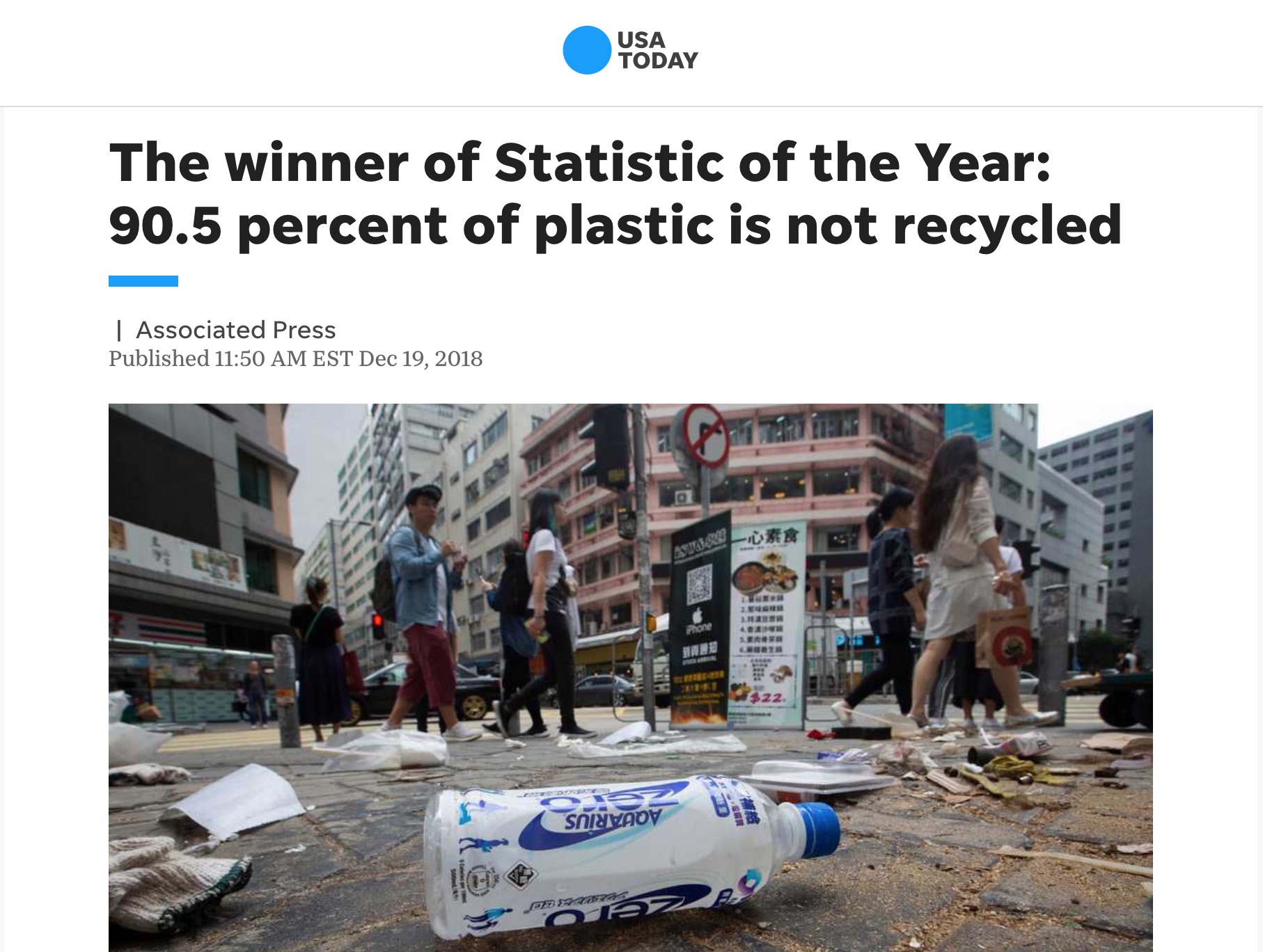
There's no shortage of news on the failing recycling industry

Informational articles can help, but their overall effectiveness is quiestionable
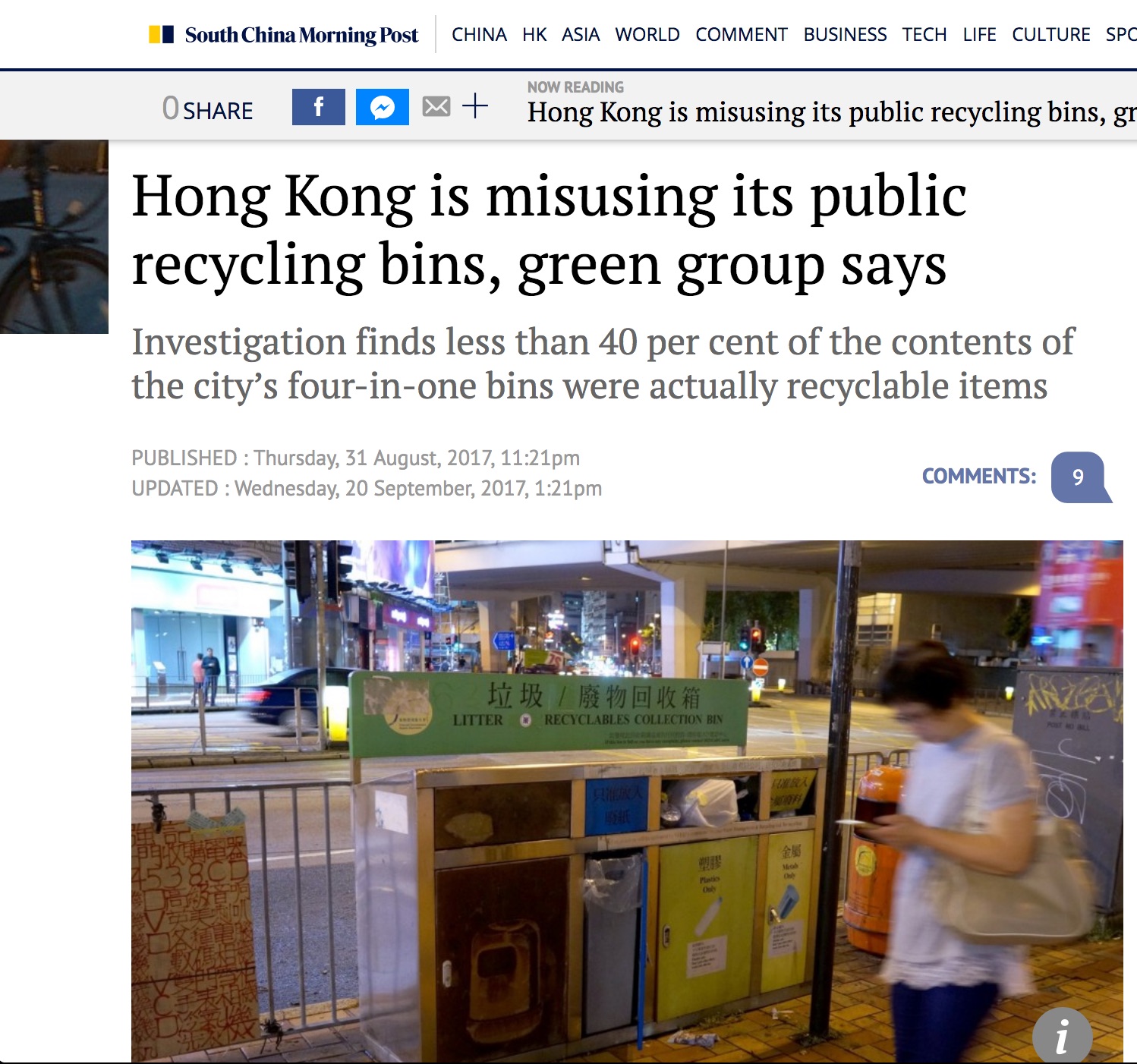
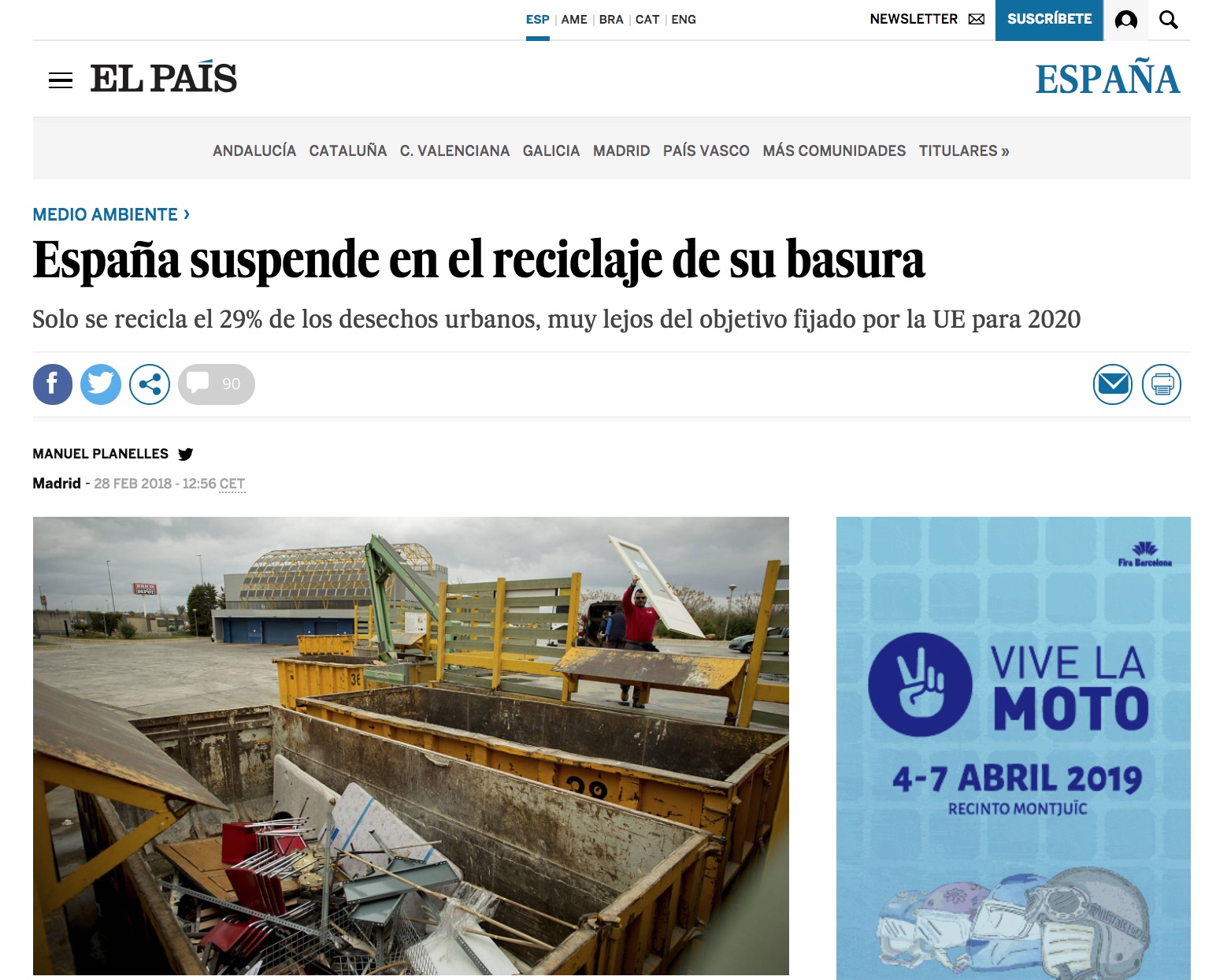
It's a global issue as no country is where they should be.
Let Us Help You Recycle
While people in many cultures over time learn and teach each other to recycle correctly, it is still an error-prone process. Many factors contribute to incorrect sorting of common products, for example:
- The categories are often confusing, and organisations try to solve this with large complicated posters which not everyone reads
- People can forget what they had previously learnt
- People can be in a hurry or make absent-minded mistakes
- People in some cultures are less diligent and disciplined than others
- Visitors to foreign states or countries are unaware of local customs
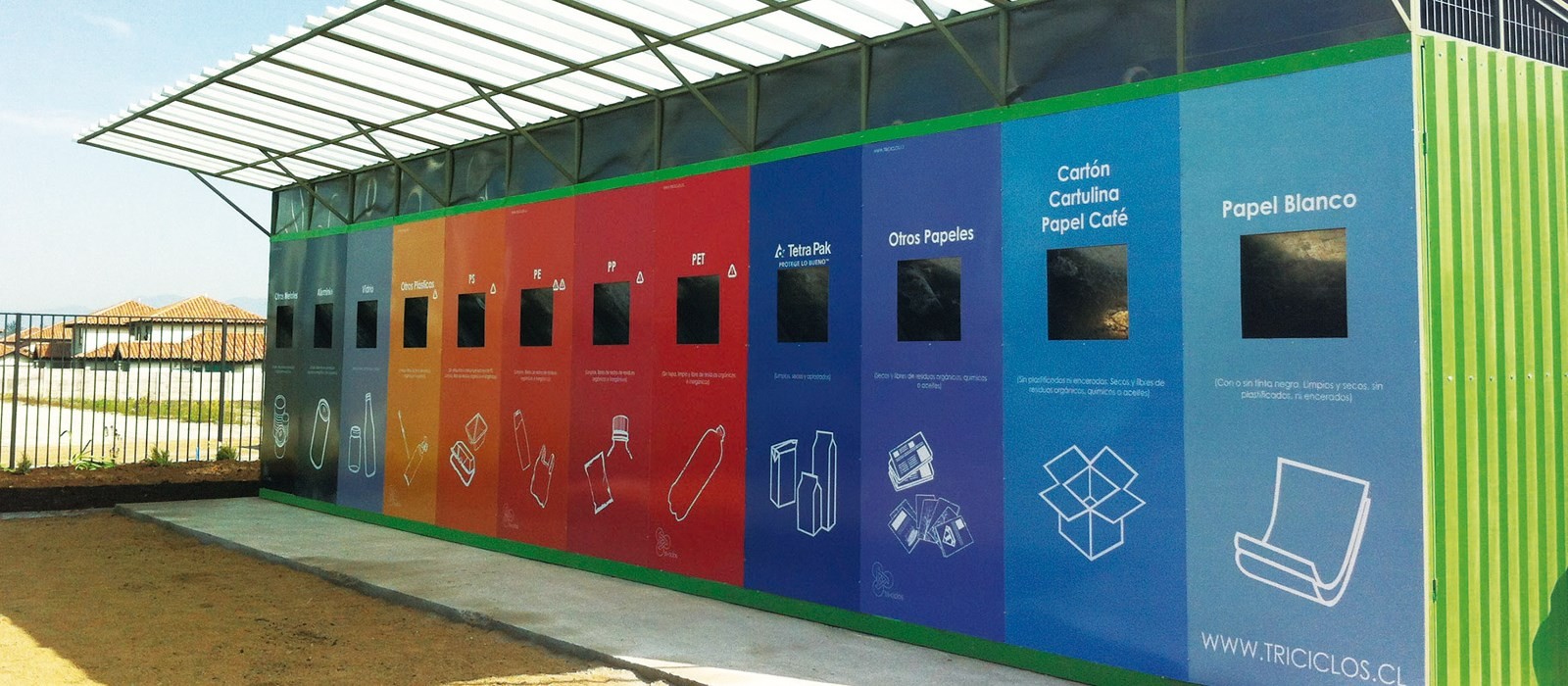
Recycling containers by TriCiclos in Chile
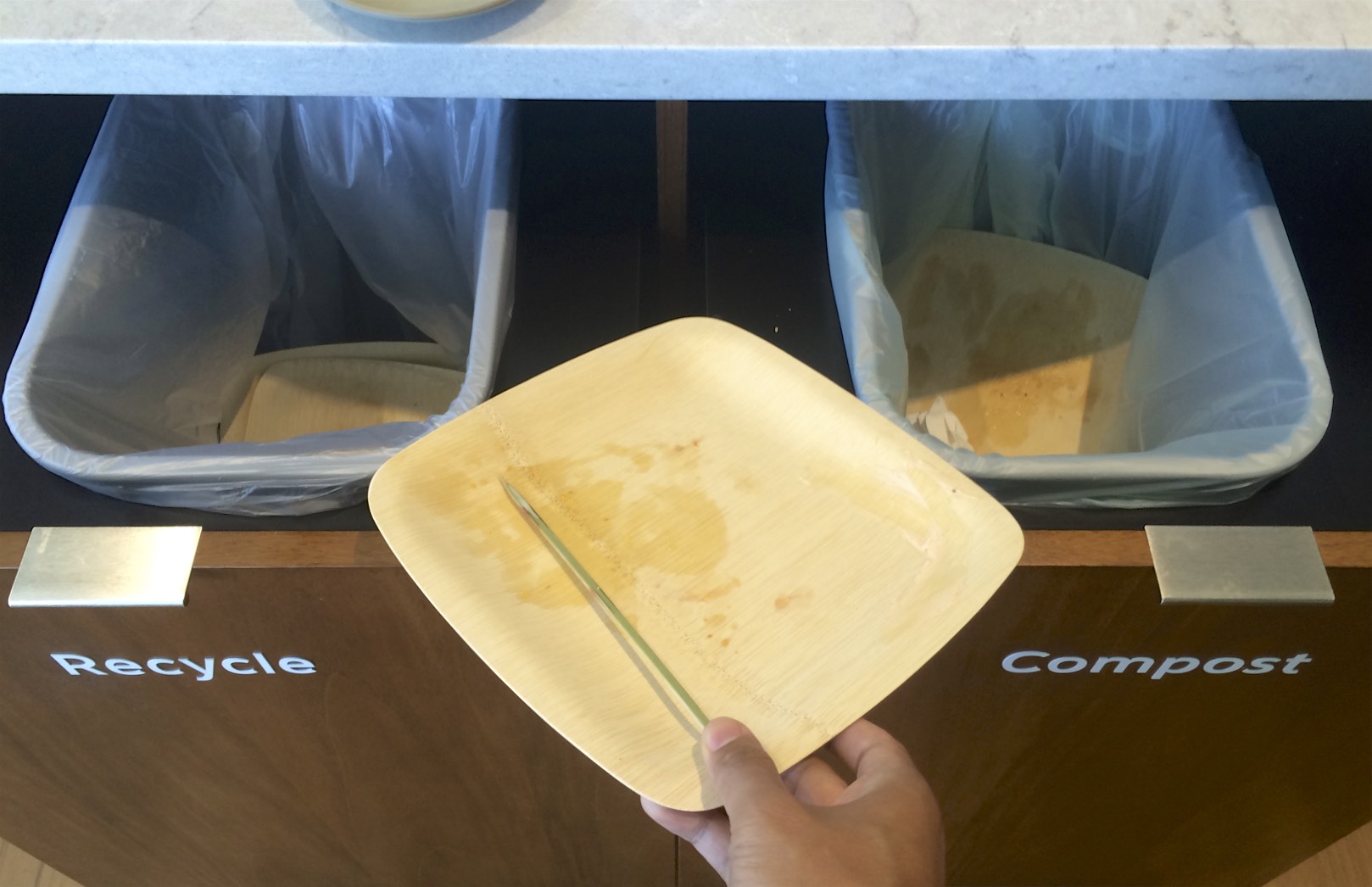
Recycling mistakes by employees at a corporate HQ
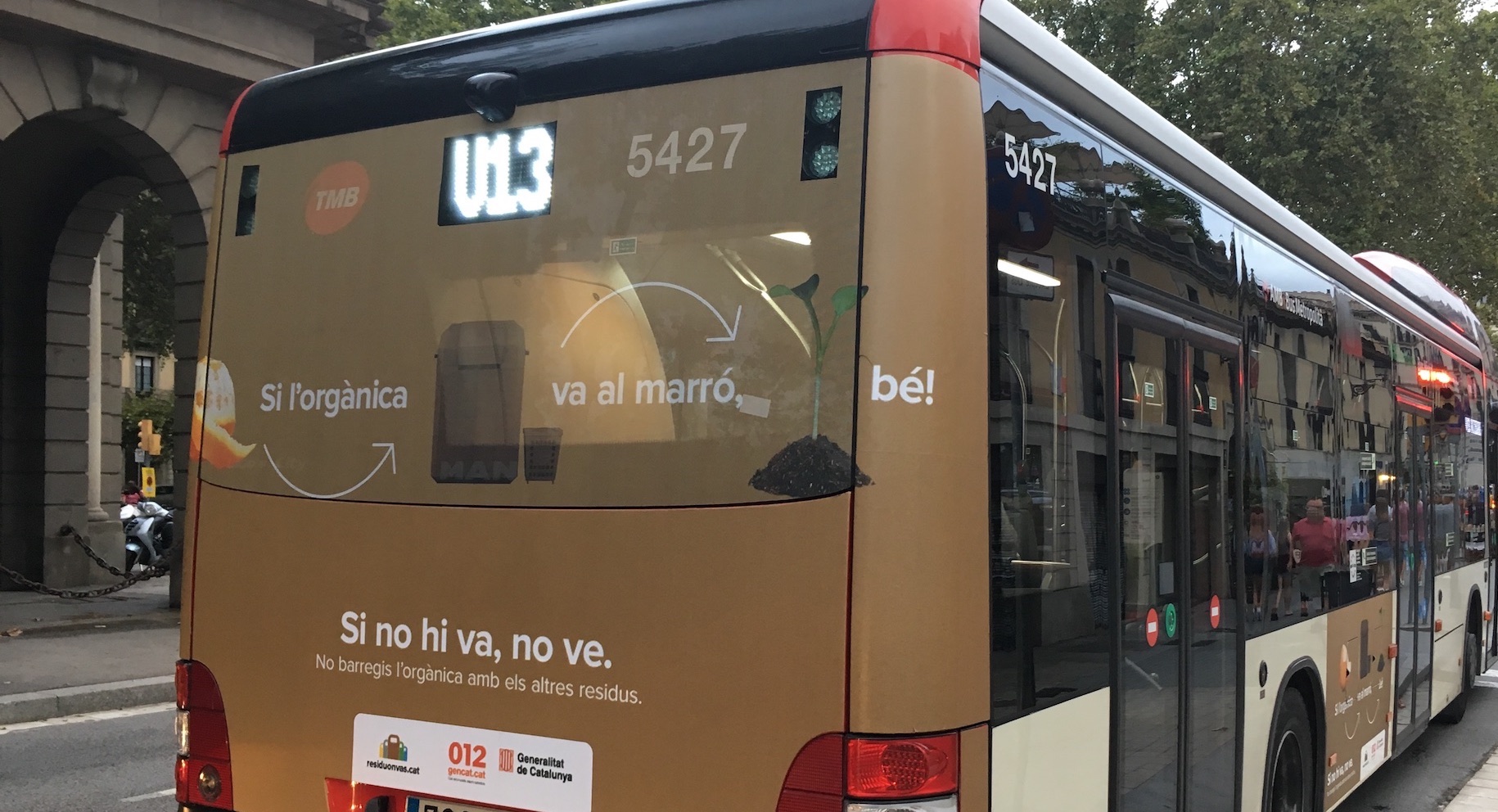
City of Barcelona placing ads on public transport to educate people
Feedback is most effective at the time of disposal, at the site of recycling sorting and directly in response to the individual’s actions. Personally I have observed citizens hesitating while recycling and lazy tourists dumping rubbish in any receptacle. Whatever the reason such a system would have an effect on improving the accuracy of objects being placed in the correct containers, resulting in lower contamination. Even for people who don’t care, having immediate feedback could prevent mistakes and act as a teaching tool.
In some parts of the world creating sorting centres is not something that all countries can afford, as was the case for Chile. The efficiency of recycling in such cases are wholy dependent on how well the population recycle.
In addition to being a feedback device, the system can also serve as a useful tool in collecting data and statistics as it is an IoT sensing device.
- Refinement of recognition system by error reporting and assessment of random samples
- Statistics on how well residents or employees are recycling
- Comparison of recycling rates of different neibourhoods of a city in order to target efforts more effectively
- Statistics on what type of item are people most confused about
- Estimation of how full a container is
- The other big R’s such as reduce and reuse are obviously very important also. [return]
- For example, using renewable energy sources to power the electricity grid, in which both government and large corporations can do more. [return]
- People who click on and read an article on recycling are likely to be people who are already putting in an effort to recycle well [return]

